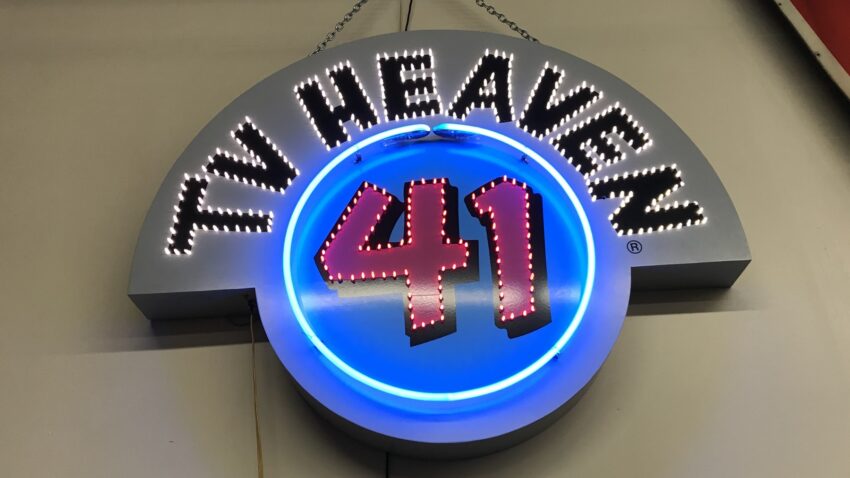On Dec. 14, 1988, several Minnesota TV executives announced plans to create a TV network. It never happened, but it marked the start of a tumultuous period for some of the stations involved.
The Minnesota Independent Network was to have launched on March 1, 1989, consisting of full-power TV stations in Minneapolis, central Minnesota, and Rochester and low-power TV/translator stations in several other parts of the state.
According to a Star Tribune report (part 1, part 2), MIN would have consisted of:
- KTMA/23 (Minneapolis), which was to have received a new callsign
- KXLI (St. Cloud), which was to have changed from channel 41 to channel 19 and moved its transmitter closer to Alexandria
- KXLT/47 (Rochester)
- Low-power TV/translator stations in Alexandria, Austin, Donnelly-Herman, and Park Rapids. A subsequent post-mortem report indicated MIN would have also included translators in Bemidji, Brainerd, and Grand Rapids.
The network would have been a partnership of three companies: KTMA Acquisition Corp., KXLI/KXLT owner Halcomm, and Red River Broadcast Corp., which owned several of the northern Minnesota translators. The Alexandria and Donnelly-Herman signals apparently would have been part of existing community-owned translator systems, while Halcomm held the Austin construction permit.
KTMA general manager Don O’Connor was also head of MIN, Inc., and indicated to the Star Tribune that the reason for the formation of MIN was the expansion of the Minneapolis TV market: The former Alexandria-Walker market had just been folded into the Minneapolis market following CBS affiliate WCCO-TV’s purchase of KCMT/KNMT and their conversion to satellite stations KCCO/KCCW. At the same time, ABC affiliate KSTP was building satellite stations and translators across Greater Minnesota and market-leading independent station KMSP was building a translator network.
Another reason may have been the fact that KTMA and KXLI were competing in a crowded market of independent TV stations, and they were number three and four among that crowd. As noted earlier, the announcement came just six days after the North Stars pulled their broadcasts from KXLI/KXLT.
The Star Tribune report indicated that MIN’s lineup would have consisted mostly of KTMA’s schedule, possibly with some content from KXLI added.
KXLI/KXLT went off the air at the end of the day on Dec. 14, bringing an abrupt end to the innovative but short-lived “TV Heaven 41” format of daily themed reruns. Then, TV silence.
The Star Tribune reported in February 1989 that there was “slow progress” and then in July 1989 that MIN plans were “on hold,” with O’Connor telling the paper that the three companies were unable to come to financial terms. KTMA filed for bankruptcy later in July.
KXLI/KXLT returned to the air in late September 1990 carrying the short-lived Star Network, which carried little-known reruns and infomercials. But the station was not carried on most cable systems.
Just a month later, perhaps as an unintended postscript to MIN, KXLI/KXLT began rebroadcasting KTMA. That lasted for a year until KXLI/KXLT began carrying Home Shopping Network in October 1991.
Meanwhile, KTMA was sold to Sonlight Television, headed by former KARE general manager Linda Rios Brook, which relaunched it in mid-1992 with Christian and family-friendly programming as KLGT-TV “Sonlight 23.” The station eventually evolved back to a mainstream independent lineup as “KLG-TV23” before becoming a charter affiliate of The WB in 1995 as KMWB.
KXLI/KXLT became the Twin Cities’ home of paid religious programming in 1994 after HSN moved to new sign-on KVBM/45, resurrecting the “TV Heaven” moniker on KXLI with a different meaning. That lasted for a couple of years until Paxson Communications bought the stations and they began carrying Paxson’s inTV network. KXLT was spun off to become the Rochester market’s FOX affiliate, while KXLI and inTV evolved into the PAX TV network.
As for the translators, Red River continued to operate its stations as repeaters of KVRR (Fargo). The Grand Rapids station was switched to KQDS (Duluth) in 1999 and the Bemidji, Brainerd, and Park Rapids translators, all within the Minneapolis market, eventually went off the air.

